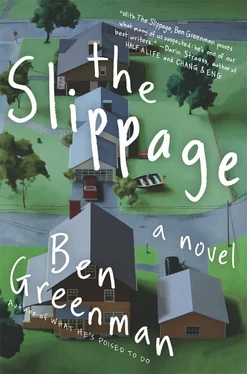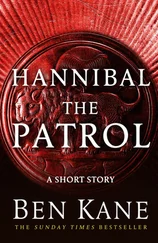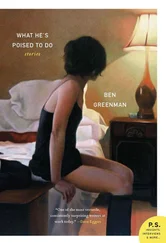“Shoot,” he said.
“Let’s have a party,” Louisa said. “Over at the new house.”
“Well, sure. But it won’t be done for a while.”
“That’s my stroke of genius. I thought of it last night at Stevie’s thing. You know how you and Wallace are putting up the deck first?”
“I do know, yes.”
“Well, that’s perfect for a party. We can bring over some of the furniture, and those scenic lanterns, and the grill. And Tom’s birthday is right around that time.”
“Maybe I’ll bring over a tub to help him celebrate.”
“Sure,” Louisa said. “We can put bottles of beer in there with him and he can hand it out to people.” Her face was taking on daylight now. “Imagine. Our first party at the new house.”
William tried. The only party he could imagine was the one he’d just been to: Gloria and Eddie dancing in a blue wash, Graham Kenner flirting with Helen Hull, Tom ordering drink after drink for an unknown freckled girl. There were blank spots where other people had been. “Sure,” he said. “Let’s do it.”
“Great.”
“Right,” he said. “Great. And if we get right up to the day of the party and I decide I’m too fragile, I can just hide out in the command center the whole time.”
She started to reply but held her fire. They let the sunlight beat down on them, a silent cleansing.
On the radio, a candidate for local office promoted a spiritual brand of environmentalism. “We all must share the earth,” he said, tone honeying. No one would have wanted the bit of it William was passing across: a small river of filthy metallic water and a bridge stretched over it. And yet there was something comforting about the scene, the way it communicated its decay honestly. The small lot beside Tom’s studio was constellated with broken glass, so William parked on the street. He smelled acrid air the second he opened the car door; this was where the warehouse fire had been, in the building that backed onto Tom’s studio. William got out and wandered down into the alley, past a Dumpster loaded with burned boards and bolts of cloth.
A man’s voice hailed William from the side of the alley. “Look,” he said. “It’s Paint Cup.” By William’s reckoning the other man was Paint Cup, but he wasn’t about to quibble. “How’s tricks?” the man said.
“Can’t complain,” William said.
“Me neither.” He coughed a laugh. He looked a little worse for wear, clothes grimier, hair knottier. A scratch on the back of his hand glowed hot-tempered red.
“I think I might take this after all,” William said. “Build a doghouse.”
“Suit yourself.” He gestured toward it the way a king might. “I have no need for it here.”
“Thanks.” William tipped it onto its side. “Hey,” he said. “I saw there was a fire here.”
“There was,” the man said. “Pretty exciting. I almost got myself an autograph from a firefighter. A hook-and-ladder was parked right over there.” He pointed. “You ask your friend about it?”
“Who?”
“Your friend. The one who was with you last time. I saw him go in there about a half hour before the place went up.”
“No,” William said. “I doubt it. He doesn’t have a place here anymore. Must have been someone who looked like him.”
“Must have been,” the man said, mouth curling into some kind of smile. He rooted in the pile next to him and withdrew a blanket. “I think I’m going to take a nap,” he said. “All this fascinating conversation has tired me out.” He disappeared beneath a stretch of blue.
“Okay,” William said. He got his fingers beneath the edge of the crate and lifted.
At the house, all he had wanted to see, he saw the moment he set down the crate behind Wallace’s command center. The doghouse mimicked the shed, which was itself a miniature of the larger house, which was now a frame standing between William and Harrow Street. The upmost third of the skeleton, done in cedar, was a graph that rose from left to right. Things, at last, were looking up.
Out in town, buying things he didn’t need, William pushed open a drugstore door into bright afternoon and ran smack into Fitch. “Oh, hi there,” Fitch said. He checked the face of his phone. “I’m late.” He angled his phone up again, squinted against the glare. “I’m late.”
“For a very important date?” William said.
“I meant to call you,” he said. A woman rolled her stroller up to him. Fitch smiled shyly, and the woman frowned, and then Fitch frowned, too, unsure why his smile hadn’t been matched.
“I need to get by,” she said. Fitch nodded but stayed put. William, in a show of leadership, moved off into a shadowed patch nearby. “I was going to call you,” Fitch said again.
“So you say,” William said. “About what?”
The afternoon sun had bleached out most colors. The car parked just beyond the overhang was slightly yellow, Fitch’s face slightly red. He shook his head, a displeased little tic, and tried to fit his hands together. “Things are bad at work,” he said. “Worse even than before. There’s a serious problem with TenPak. When O’Shea pulled out, and then Loomis, there was a run by smaller investors, and it turns out that Hollister doesn’t have the money to cover the customers. And all the while, the new guy’s been selling harder and harder, which means the process will only repeat. There are at least two lawsuits being threatened, and every day Baker makes it clearer that he’s not going to take the fall for this.”
“So who is?”
“I don’t know,” Fitch said. “All of us, I guess. When there’s a storm, it rains down.”
“Maybe I’ll turn out to be the luckiest one of all.” Fitch didn’t even smile; he just stared at his own hands, which were fidgeting faster now.
A horn honked. “That’ll be Gloria,” Fitch said, and rushed across the panhandle of the lot and vanished into a slightly green sedan, looking around as if spies were everywhere.
William’s phone buzzed with a text from Karla. “Turn on news,” it said. “Ch 9 now.” The fire commissioner stood at a podium, a bouquet of microphones in front of him and a whiteboard behind him. “We are now prepared to release a comprehensive profile of the man we think is responsible for the fires.”
A woman in the front raised her hand. The gesture displeased the commissioner, but he pointed at her anyway. “You’re sure it’s a man?”
“Reasonably so.”
A man in the back blurted out. “Can you tell us anything else?”
“I can,” the commissioner said. “I was about to.” He turned toward the whiteboard, scribbled in a blank space, and then turned back. “Based on the way the crimes have unfolded, we have determined that our suspect is a white male, almost certainly in his early to mid-forties, likely well educated. There’s a high probability that he is either unmarried or childless.”
A man in the front row leaned forward, taking his time with his question. “And what’s the motive?”
The fire commissioner sighed. “That’s where I was going next. He appears to be motivated by economic resentment rather than a personal grudge. These are only educated guesses, though, or interpretations.”
The woman in the front raised her hand again. “But definitely a man?” she said.
“They usually are,” the fire commissioner said.
“And what are we counting as the arson set?” said a man in the back.
“Clearly, it’s not every fire in town,” the commissioner said. Laughter surged briefly. “It’s the ones we’ve been talking about all along: the depot, the marina, the hardware store, the dollar store. There are erroneous reports about this last one, the warehouse.” That was the building adjacent to Tom’s old studio; William leaned closer to the screen. “That fire seems to have been set by a copycat,” he said. “This isn’t uncommon: a case starts to get publicity, and someone wants in on it. The warehouse fire was significantly smaller and significantly more amateurish, a kind of experiment.”
Читать дальше












